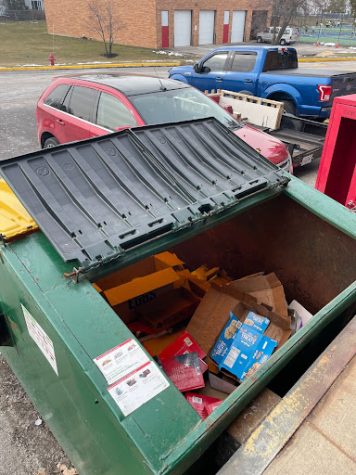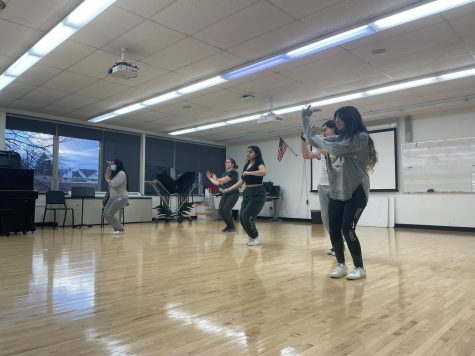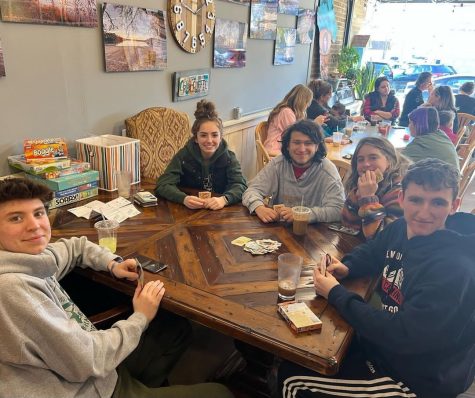Science Olympiad preps mentally, physically for year ahead

Image submitted by Enrique Gonzalez
Attending Science Olympiad on weekdays after school, students in the club prepared mentally and physically for their tournament on Nov. 20 and for the 22 tournaments ahead of them this year.
December 11, 2021
Attending Science Olympiad on weekdays after school, students in the club prepared mentally and physically for their tournament on Nov. 20 and for the 22 tournaments ahead of them this year.
With the Nov. 20 tournament being their first tournament of the year, Joe Maxwell, co-coach of Science Olympiad, was quick to explain how a competition works.
“There are three types of events,” Maxwell said. “There are peer study events, where students study up on a certain topic like ornithology. There are lab events, like forensics, where students learn how to do forensics labs– it’s like a chemistry lab, and then there are build events, like gravity vehicle, where the students have to build a car that acts in a certain way.”
Students prepare for these events at the school in-person, but their first competition was held remotely given the continued COVID-19 pandemic with the student participants getting together at their individual schools.
Despite being remote, students did not treat it like any less of a tournament, but some students noted the challenges unique to this year given that last year had adaptations for meetings and competitions because of the pandemic safety protocols.
“We’re definitely not as well-prepared; a lot of competitions are different from last year, so it feels like we’re starting back from scratch,” Enrique Gonzalez, sophomore, said prior to the Nov. 20 competition.
Gonzalez went into further detail about his concerns.
“We need to work on staying on topic. On Zoom it was a lot easier to do, but right now, our main problem is staying on task, and we also have different stuff going on, so I’m not so sure how this competition will play out.”
Other students also did not know what this first tournament had in store for them.
“I’m not really sure how this competition will work; historically, this competition has a lot of important schools going, and I think, for us, we’re viewing this as a testing point to see where we’re at as a team, ” Ciara West, junior, said.
While some students seemed to express apprehensiveness regarding the first tournament, Freshman Joshua Bradley remained hopeful.
“I am currently finishing up this bridge for my project in the competition this weekend,” he said prior to the tournament. “I’m hoping it doesn’t collapse before the rest or at all if it holds all that weight.”
Gonzalez remained hopeful going into the tournament weekend as well.
“I hope this tournament, while remote, gives us a good start to the rest of the year,” he said.
After the Nov. 20 tournament, Jackie Hogan, co-coach of Science Olympiad, provided an update.
“It was awesome, so it was a remote tournament; we didn’t get to go to a place. We were all on Zoom,” she said. “We won at least seven or eight medals, so we did really well.”
Gonzalez provided his perspective on the tournament, too.
“My partner and I weren’t prepared for our events, so we took up two new ones. We had almost no practice, but we made it far, considering that we didn’t do bad,” said Gonzalez, whose team got 10 and 11 out of 40 on a rocks and minerals event.
Many members had similar perspectives and said they felt underprepared given the changes from last year to this year, yet that didn’t prevent the team from receiving some successful results.
West, for example, received first with her partner in an event on ornithology.

![MHS Alum Trey Baker hosting a MBK rising event on February ninth at the MHS annex. Said Baker, “I’m just really excited [and] super grateful for the community of Mundelein, for our educators, for our administration, at MHS who are really buying into this.”](https://mhsmustang.com/wp-content/uploads/2023/03/TreyBaker-350x475.jpg)

